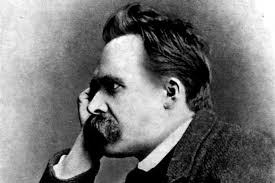
Friedrich Nietzsche: The Philosopher of the Future
Introduction
Friedrich Nietzsche, one of the most influential and provocative philosophers of the 19th century, challenged conventional thinking and questioned the foundations of Western morality, religion, and culture. His writings on the "will to power," the "Übermensch," and the "eternal recurrence" continue to inspire and provoke debate. Nietzsche's work invites us to rethink our values and embrace the transformative power of philosophy.
Life and Historical Context
Friedrich Nietzsche was born in 1844 in Röcken, Prussia (now Germany). He initially pursued a career in classical philology before turning to philosophy. Nietzsche's tumultuous life was marked by periods of intense creativity and debilitating illness. Despite his relatively short productive period, Nietzsche's work had a profound impact on subsequent generations of thinkers.
Key Ideas and Philosophical Contributions
Nietzsche's philosophy is characterized by its radical questioning of traditional values and its bold vision of human potential.
Will to Power: Nietzsche posited that the fundamental driving force in humans is the "will to power"—the desire to assert and enhance one's own strength and influence.
Übermensch (Overman): In "Thus Spoke Zarathustra," Nietzsche introduced the concept of the Übermensch, an individual who transcends conventional morality to create new values and meaning.
Eternal Recurrence: Nietzsche's idea of eternal recurrence challenges us to live our lives as if they were to be repeated infinitely, embracing every moment with affirmation.
Critique of Religion and Morality: Nietzsche famously declared "God is dead," critiquing the foundations of Christian morality and advocating for a reevaluation of all values.
Dionysian and Apollonian: Nietzsche contrasted the Dionysian (representing chaos, passion, and instinct) with the Apollonian (representing order, reason, and harmony) as fundamental aspects of human experience.
Influence and Legacy
Nietzsche's work has had a profound and enduring impact on philosophy, literature, psychology, and the arts. His ideas influenced existentialism, postmodernism, and psychoanalysis, among other fields. Nietzsche's challenge to traditional values and his vision of human potential continue to resonate in contemporary thought and cultural critique.
Notable Works
Nietzsche's writings cover a wide range of topics and continue to be studied and debated:
Thus Spoke Zarathustra: A philosophical novel presenting Nietzsche's ideas on the Übermensch and eternal recurrence.
Beyond Good and Evil: A critique of traditional morality and an exploration of the will to power.
The Genealogy of Morals: Analyzes the origins and development of moral concepts.
Ecce Homo: Nietzsche's autobiographical work reflecting on his life and philosophy.
The Birth of Tragedy: Examines the interplay of the Dionysian and Apollonian elements in Greek tragedy and culture.
Twilight of the Idols: A critique of contemporary culture and philosophy.
Conclusion
Friedrich Nietzsche's bold and provocative philosophy challenges us to rethink our values and embrace the potential for human transformation. His critiques of traditional morality and his vision of the Übermensch inspire us to question the status quo and seek new ways of understanding and living. By engaging with Nietzsche's ideas, we are invited to explore the depths of human existence and the possibilities for creating meaning in a world without absolutes.
Further Reading and External Links
- Nietzsche, Friedrich. Thus Spoke Zarathustra. Archive.org
- Nietzsche, Friedrich. Beyond Good and Evil. Archive.org
- Nietzsche, Friedrich. The Genealogy of Morals. Archive.org
- Nietzsche, Friedrich. Ecce Homo. Archive.org
- Nietzsche, Friedrich. The Birth of Tragedy. Archive.org
- Nietzsche, Friedrich. Twilight of the Idols. Archive.org
- Stanford Encyclopedia of Philosophy: Nietzsche
- Internet Encyclopedia of Philosophy: Nietzsche
- Encyclopedia Britannica: Friedrich Nietzsche
This article aims to provide a comprehensive overview of Friedrich Nietzsche's philosophy, encouraging further exploration and understanding of his profound contributions to human thought.